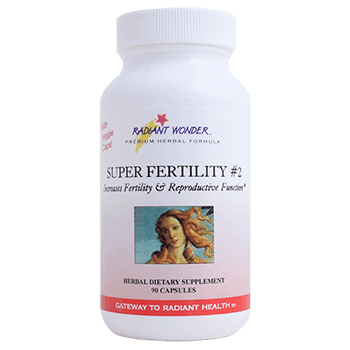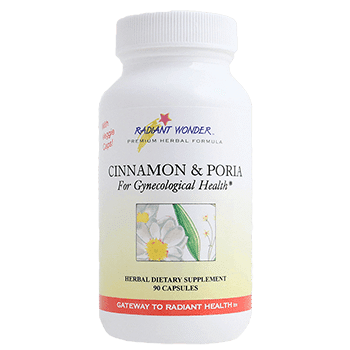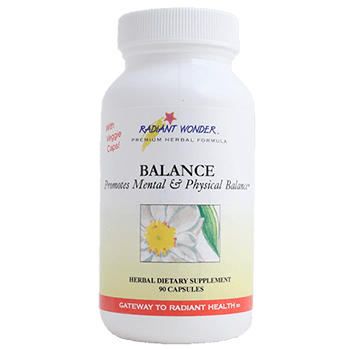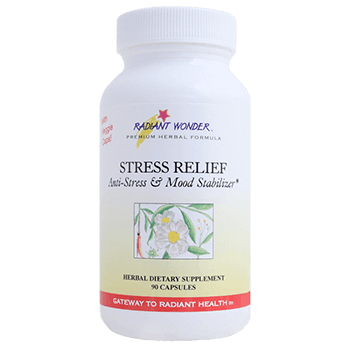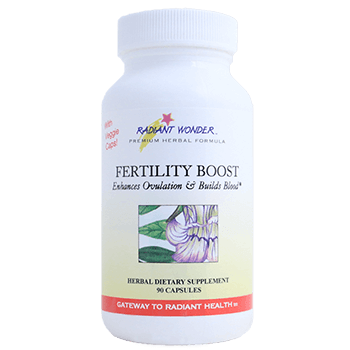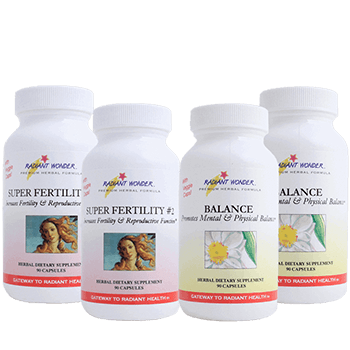Research Indicates That Chinese Herbal Medicine may be twice as Effective for Infertility as Conventional Therapies 1
- Chinese Herbal Formulas (unique formulas for different people) alone demonstrated 60% effectiveness for pregnancy or increased fertility.
- Western fertility Drugs in the same study demonstrated 30% effectiveness.
- Chinese Medicine combined with Western Medical Medicine resulted in 3.5 times better odds for conceiving.
- Summary of a study published in December 2011 in the USA Journal Complimentary Therapies in Medicine.1
The study, performed by researchers at the University of Adelaide, South Australia, involved reviewing a range of studies involving a total of 1,851 women. The women were aged between 18 and 45 and had all received some form of treatment for infertility. The reviewers looked at treatment spans of four months.
Their reasons for infertility included:
- Endometriosis
- Polycystic ovary syndrome (PCOS)
- Amenorrhea (lack of a cycle)
- Advanced maternal age (poor ovarian reserve, lack of ovulation, high fsh, premature ovarian failure, low AMH, irregular cycles, unexplained infertility, diminished endometrial wall)
The researchers reviewed studies where women had received either:
- Chinese herbal medicine alone
- Chinese herbal medicine and acupuncture
- Chinese herbal medicine in combination with Western drugs or surgery
The review covered 7 randomized controlled trials, 1 non-randomized controlled trial, 13 cohort studies, 3 cases series and 6 case studies.
The Results: Indicate that Chinese Herbs alone were the most effective treatment
The results demonstrated that women who were given Chinese Herbal Medicine treatments (this is without acupuncture) were twice as likely to become pregnant as those who were given conventional fertility drug therapy1.
Consistent results for those in the Chinese Herbal Medicine group were three things: better quality eggs, more eggs, and better ovulatory function.
Balancing the Cycle, not part of Western protocol, seemed to be a key to the higher success for the Eastern approach.
The researchers also found it interesting that balancing the menstrual cycle was such a key part of diagnosis and treatment in Traditional Chinese Medicine. This was done through individualized treatment with various herbal formulas, self massage, and other techniques taught to the women to self administer. This focus on the quality of the cycle was commented upon as being interesting and meriting further investigation.
The results showed that women treated with Chinese Herbal Medicine as well as conventional drugs, were 3.5 times more likely to become pregnant than women who only received conventional drugs. And those who were only taking the herbal formulas had the most dramatic results.
Average fertility rates (on average) were as follows:
- Standard Western medical drugs or IVF: 30%
- Chinese Herbal Medicine only: 60%
- Mean clinical pregnancy rate (arrived at by Meta-analysis of selected cohort studies)
- Invitro Fertilization (IVF) 30%
- Traditional Chinese Medicne (TCM) Herbs and acupuncture 50%
Why is Chinese Herbal Medicine So Effective for Infertility?
Gianna Buonocore, is a registered Chinese medicine practitioner of the Chinese Medicine Council of Hong Kong. She also has acupuncture clinics at the Integrated Medicine Institute and Matilda Medical Centre.
Gianna explains:
“In Traditional Chinese Medicine, the Kidneys, Liver, Heart and uterus form the core of reproductive activity and together they help regulate the menstrual cycle. Our medicine can increase the chance of getting pregnant by improving the function of these organs, which in turn promotes qi (energy) and blood flow to critical areas of the body.” (Kidneys, Liver, Heart are captitalized because these systems have similarities with the Western kidneys, liver and heart, but are not the same). For example, the Heart represents the entire Central Nervous System and the brain. It is not just the mechanical heart of Western Medicine.)
What can cause problems with your menstrual cycle? The supply and flow of blood and qi may be disturbed by:
- Emotional stress
- Infection
- Trauma
- Poor nutrition and
- A hectic lifestyle
This disturbance can give rise to irregular bleeding and ovulation, endometriosis, polycystic ovary syndrome (PCOS) and amenorrhea.
The Quality of the Blood Itself is Important
It’s not just the uninterrupted flow of blood to the reproductive organs and the rest of the body that is important. The blood must be of a certain quality.
Gianna says “According to Chinese Medicine, blood is a vital yin substance, which nourishes the ovaries and uterus. If the blood characteristics are poor then the developing eggs will be of poor quality and the endometrial lining will be too thin for implantation.”
IVF Support with Acupuncture and Chinese Herbs
Invitro Fertilization (IVF) is a physically invasive procedure. It is also emotionally stressful. Traditional Chinese Medicine practitioners usually advise women to try natural therapies first before considering the more invasive options.
Gianna concludes ““IVF and IUI are not for everyone, although studies have shown that acupuncture can improve the success rates of IVF or IUI 2, 3. the wonderful thing about Traditional Chinese Medicine is that it stimulates the body’s own natural capacity to conceive”.
Traditional Chinese Medicine can be used on its own or combined with IVF or IUI treatment to increase fertility. It can be help to reduce stress, improve the function of the ovaries to produce better quality eggs, prevent the uterus from contracting after an IVF/IUI procedure and decrease the side effects of the drug used.
References:
1. Ried K, Stuart K, 2011: Efficacy of Traditional Chinese Herbal Medicine in the management of female infertility: A systematic review; Complementary Therapies in Medicine, Vol 19 Issue 6, 2011; 319-31
2. Paulus W E, 2002: Influence of acupuncture on the pregnancy rate in patients who undergo assisted reproduction therapy; Fertility and Sterility, 2002(4); 77: 721-4
3. Dieterle et al, 2006: Effect of acupuncture on the outcome of IVF and intracytoplasmic sperm injection: a randomized, prospective, controlled clinical study; Fertility and Sterility, 2006; 85: 1347-51

